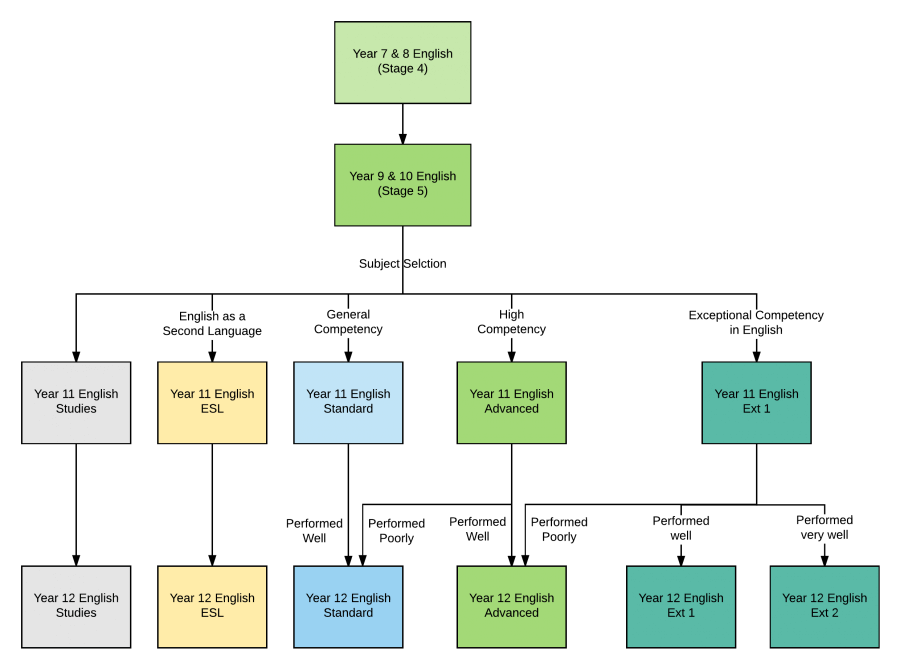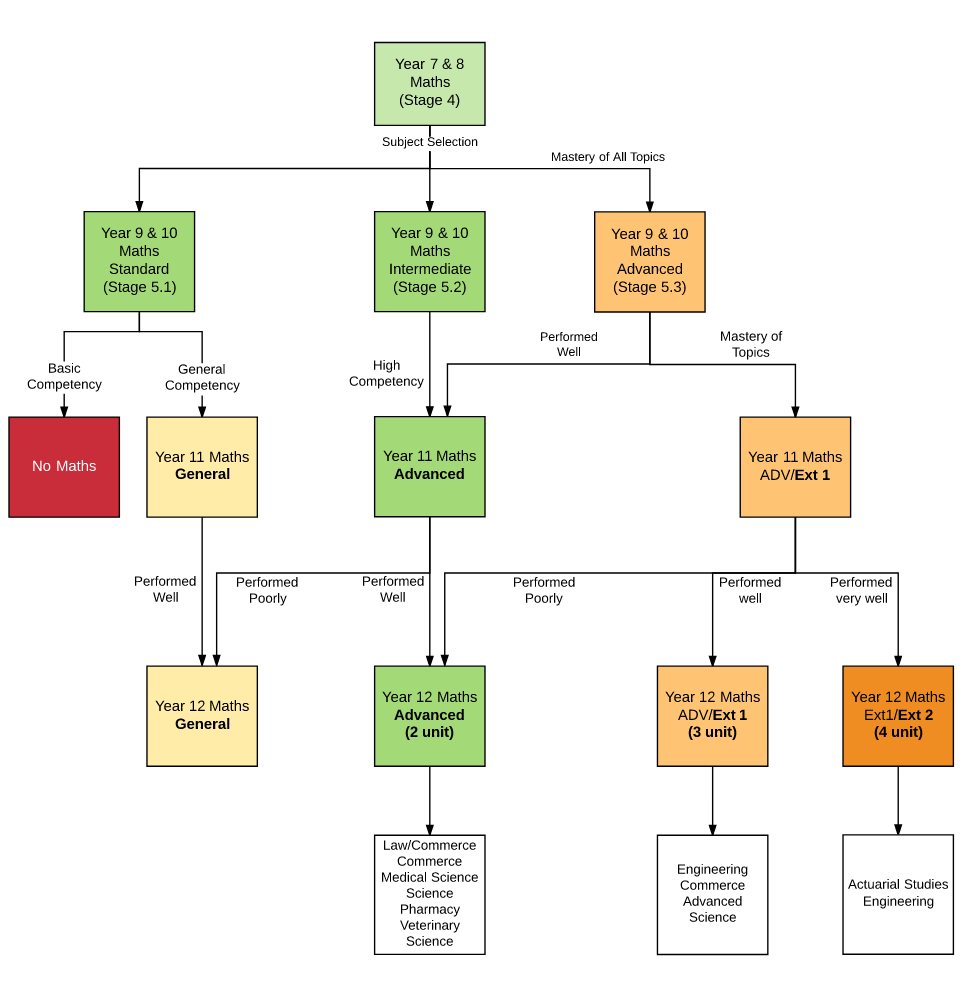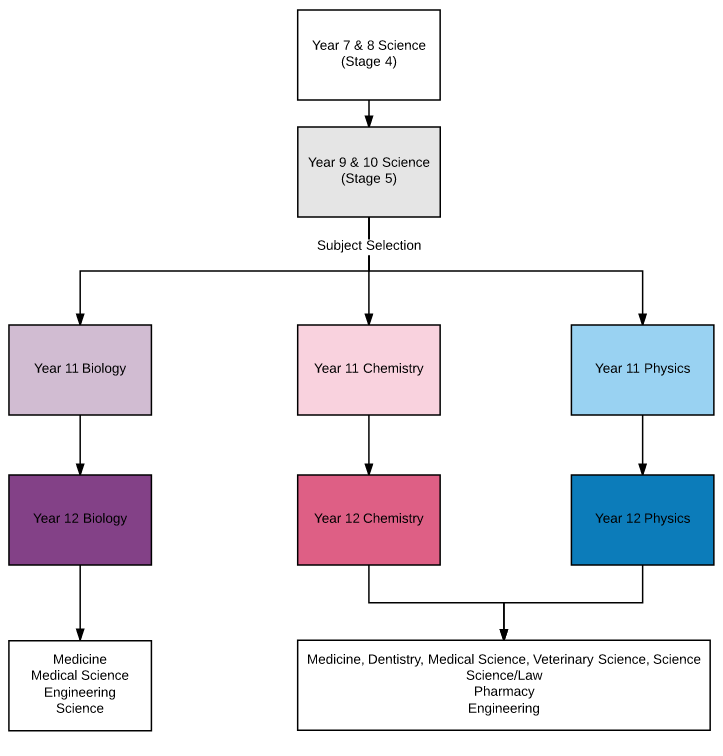Welcome to Matrix Education
To ensure we are showing you the most relevant content, please select your location below.
Select a year to see courses
Learn online or on-campus during the term or school holidays
Learn online or on-campus during the term or school holidays
Learn online or on-campus during the term or school holidays
Learn online or on-campus during the term or school holidays
Learn online or on-campus during the term or school holidays
Learn online or on-campus during the term or school holidays
Learn online or on-campus during the term or school holidays
Get HSC Trial exam ready in just a week
Get HSC exam ready in just a week
Select a year to see available courses
Science guides to help you get ahead
Science guides to help you get ahead

In this Year 10 High School Survival Guide, we will outline the common issues faced by Year 10 students, explain what’s required in each subject for academic success, and share the effective study habits of past students.
If students fall behind in Year 10, they will limit their choices for subject selection in Year 11 & 12.
In fact, any Year 10 students who perform poorly in English, Mathematics, or Science will be discouraged by their school in undertaking subjects such as English Advanced, Maths Extension 1, Chemistry, or/and Physics in Year 11.
Staying ahead in Year 10 is clearly crucial!
Let’s look at what Year 10 involves for your child.
Students must prepare for the following when transitioning into Year 10:
Year 10 students must have a solid grasp of the fundamental concepts of their subjects in preparation for Year 11.
Some of the common issues that Year 10 students experience are listed below:
Year 10 is the final opportunity to determine which subjects are the right fit for Year 11. Students who have a clear idea of what subjects they plan to study in Year 11 and 12 are more likely to take Year 10 subjects seriously and therefore be more successful.
As universities are increasingly requiring students to have a minimum HSC result in English and Mathematics for various courses, it’s important for students to decide early in Year 10 which subjects they wish to continue in Year 11. This way, they can maximise their chances of success in key areas and subjects.
Please see the flowcharts below for the minimum competencies required for different levels of English, Mathematics, and Science.
English
Year 10 Students who wish to study English Advanced or Extension 1 in Year 11 need to demonstrate a high level of competency.

Mathematics
Year 10 students studying Mathematics Advanced (5.3) must demonstrate mastery of topics for consideration in Year 11 Mathematics Extension 1 course (3-unit).

Science
Year 10 students studying Science must demonstrate a high level of competency in all of the three modules (The Living World, The Chemical World, The Physical World) in order to be considered for Year 11 Biology, Chemistry or/and Physics.
Note the university courses that require these subjects.

In order to demonstrate high competency or mastery of topics in English, Mathematics, and Science, students are expected to dedicate at least 12 to 15 hours of study each week. In addition, Year 10 students continue to receive a significant amount of work from their various subjects. This means that students will need to do a significant amount of homework each night.
Conscientious students will do at least 2.5 hours study per evening.
Year 10 students will learn the following compulsory subjects:
In Year 10, students continue to study the electives they chose from these broad areas:
Year 10 English is where students finish Stage 5. Stage 5 has a specific group of learning outcomes set by NESA.
Matrix Theory Books are designed to help students achieve the complete list of Stage 5 Outcomes:
This means that in Year 10:
Confidence with essay structure is the key to acing the HSC for English Advanced.
The texts in Year 10 increase in complexity to prepare students for Years 11 and 12:
The table below outlines the Year 9 and 10 English program at Matrix:
| Table: Matrix Year 9 and 10 English Program | ||
| Year 9 English | Year 10 English | |
| Oct – Dec | Text and representation | Rhetoric and Persuasion |
| Feb – Apr | Critical Film Studies | Narrative Fiction |
| Apr – Jun | Poetry | Modernism |
| Jul – Sep | Shakespeare and Reception – Macbeth | Shakespeare – Hamlet |
Year 10 students will face long responses and essay questions.
Students must be confident answering Year 10 essay questions like this:
| Sample Year 10 English Question |
| “Modernism is an artistic response to a rapidly changing world.” To what extent is this statement reflected in the Virginia Woolf’s To The Lighthouse and T.S Eliot’s The Love Song of J Alfred Prufrock? In your response, provide and discuss evidence from the texts. |
Learn how to conquer Year 9 English with our comprehensive Guide. Read it now.
Year 10 Mathematics consolidates the complex ideas and methods that lay the foundation for the HSC. In Stage 5, learning is split into 3 streams: 5.1, 5.2, and 5.3.
Mathematics 5.1 and 5.2 students will go into Year 11 and study general Mathematics. Students who study 5.3 will study Mathematics 2 unit Preliminary and Extension 1.
| Table: Stage 5 Mathematics | |
| Mathematics | Topics |
| Stage 5.1 | Financial Mathematics Indices Linear Relationships Non-Linear relationships Area and Surface Area Numbers of Any Magnitude Right-Angled Triangles (trigonometry) Properties of Geometrical Figures Single Variable Data Analysis Probability |
| Stage 5.2 | Financial Mathematics Ratios and Rates Algebraic techniques Indices Equations Linear Relationships Non-Linear relationships Area and Surface Area Volume Right-Angled Triangles (Trigonometry) Properties of Geometrical Figures Single Variable Data Analysis Bivariate Data Analysis Probability |
| Stage 5.3 | Ratios and rates Algebraic techniques Surds and Indices Equations Linear Relationships Non-Linear Relationships Polynomials Logarithms Functions and Other Graphs Area and Surface Area Volume Trigonometry and Pythagoras’ Theorem Properties of Geometrical Figures Circle Geometry Single Variable Data Analysis Bivariate Data Analysis |
Students who struggle with the concepts in the table above have two choices:
Students must have confidence in these subjects going into Year 11 or they will struggle to keep up. Having a solid grounding in trigonometry will make calculus more accessible. Calculus is a core subject for mathematics advanced and extension in Years 11 and 12. Matrix students these areas comprehensively.
More detailed information about Stage 5 Mathematics can be found on the NSW Education Standards Authority (NESA) website. At Matrix, students address all of the topics set by NESA in their Year 10 Mathematics Theory Books. Each lesson is designed to ensure students meet the Stage 5 outcomes.
The table below outlines the Year 9 and 10 Mathematics program at Matrix:
| Table: Matrix Year 9 and 10 Mathematics Program | ||
| Year 9 | Year 10 | |
| Oct – Dec | Algebraic Techniques Equations Inequalities | Quadratic Equations Probability |
| Feb – Apr | Indices & Surds Surface Area Volumes | Trigonometric Ratios Further Trigonometry |
| Apr – Jun | Quadratic Equations Properties of Geometrical Figures | Curve Sketching Non-Linear Relationships Functions |
| Jul – Sep | Trigonometry Linear Relationships Simultaneous Equations | Polynomials Logarithms |
Students need to be confident answering questions like this unaided:

Stage 5 Science is taught over two years. The order that students study these disciplines will vary from school to school. In Stage 5 Science, students will have the opportunity to explore the main branches of Science and see which they might like to pursue in the future. Students study basic chemistry, physics, biology, geology, and a topic on space. Typically, chemistry, physics and biology are divided between Year 9 and Year 10, so that students will likely continue their study of these topics in Year 10. Geology and space may be separated, with one being taught in Year 9 and the other in Year 10.
Stage 5 Science is broken down into 5 subject areas:
More specific information about these Stage 5 topics can be found on the NESA website.
In Years 9 and 10, students study the following topics:
| Table: Year 9 and 10 Science Topics | |
| Subject area | Year 9 and 10 Science |
| Biology | Multi-cellular organisms Conservation of the environment and sustainability Evolution DNA |
| Chemistry | The Periodic Table Atomic Structure Chemical reactions Practical applications of chemical reactions |
| Earth and Space | The history of scientific models and theories Plate tectonics Outline interactions involving the atmosphere, biosphere, hydrosphere, and lithosphere |
| Physics | Energy transfer Wave and particle models Motion of objects Introduction to electricity The Law of Energy Conservation |
At the end of Year 10, students will be asked to pick specific Science modules – physics, chemistry, or biology. Year 10 is the opportunity to learn which fields interest them!
More detailed information about Stage 5 Science can be found on the NSW Education Standards Authority (NESA) website. At Matrix, students address all of the topics set by NESA in their Year 10 Science Theory Books. Each lesson is designed to ensure students meet the Stage 5 outcomes.
The table below outlines the Year 9 and 10 Science program at Matrix:
| Table: Matrix Year 9 and 10 Science Program | ||
| Year 9 | Year 10 | |
| Oct – Dec | Chemical World: Chemistry Part 1 | Chemical World: Chemistry Part 2 |
| Feb – Apr | Living World: Biology Part 1 | Living World: Biology Part 2 |
| Apr – Jun | Physical World: Physics Part 1 | Physical World: Physics Part 2 |
| Jul – Sep | Earth and Space Part 1: Earth | Experimental Science Earth and Space Part 2: Space |
At the end of Year 10, Matrix runs an Experimental Science course (which both replaces and includes the Space topic). This is aimed at addressing the Skills parts of the syllabus which are formally assessed in Years 11 and 12 but never explicitly taught in schools. This topic covers skills such as designing and evaluating an experiment, assessing types of errors, and analysing results qualitatively or quantitatively through graphs. The skills covered are transferable to all senior science subjects.
Students need to be confident answering questions like this unaided:
| Sample Year 10 Science Question |
| Construct balanced chemical equations for the reactions of the following substances with sulfuric acid. (i) Sodium hydroxide (ii) Zinc (iii) Copper(II) carbonate |
Year 10 Science allows students to gain a thorough understanding of fundamental scientific concepts and develop knowledge and skills to prepare students for HSC science subjects.
We hope this article and the links provided are a useful resource in preparing you for what’s to come in Year 10, and in achieving your academic ambitions.
Struggling to get on top of maths? Read our Beginner’s Guide to Year 10 Maths and learn the secrets to acing Maths!
© Matrix Education and www.matrix.edu.au, 2025. Unauthorised use and/or duplication of this material without express and written permission from this site’s author and/or owner is strictly prohibited. Excerpts and links may be used, provided that full and clear credit is given to Matrix Education and www.matrix.edu.au with appropriate and specific direction to the original content.